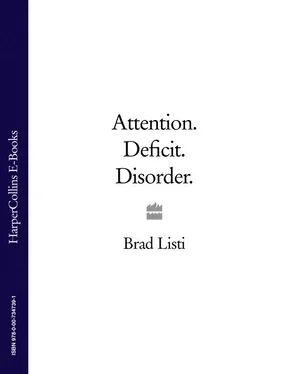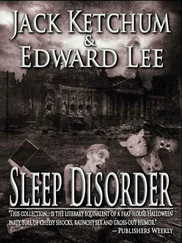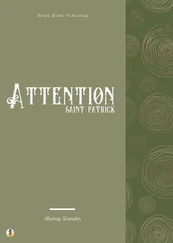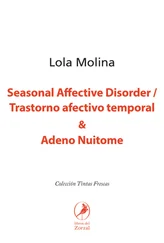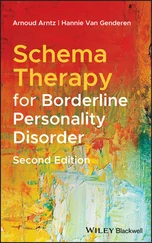Then the priest stepped up to the microphone again, said a few final words in closing, and the ceremony ended. Sting’s “Fields of Gold” came on the church P.A. system, the recessional hymn. One of Amanda’s favorites.
As soon as that happened, I was up and out the door in a flash, one of the very first to leave. I wanted some fresh air. I wanted a cigarette. I walked out of the church and down the concrete steps and moved away, over to the left, over toward the road. I pulled a cigarette from my jacket pocket and lit up. It was overcast outside, a Bay Area winter day, cool and crisp and pleasant. The cloud cover was thinning out, and the sun was trying to break through. Cars were going by, and a light wind was blowing through the trees. There was nothing too unusual about it.
Fortunately, there was no burial, just a receptionback at Amanda’s parents’ house. Amanda’s remains had already been cremated. No corpse with makeup, no lowering of the coffin into the muddy brown hole. I was thankful for that. The worst of it was over.
At some point along the way, I’d decided not to go to the reception. I’d convinced myself that there was no need to go to the reception. I knew it would be polite to stop in and offer my condolences to Amanda’s family, but I didn’t think I could deal with seeing her parents, didn’t think I could deal with offering my sympathies at a reception. I was sure her parents knew all about me, sure they knew about the breakup, my behavior, the fact that I’d broken Amanda’s heart. I figured I’d write them a letter later and skip the reception altogether. I didn’t have what it took to attend. Too much intensity, too much sadness, too many people, too much conversation. Everyone standing around, drinking wine, eating finger food, talking in hushed tones about how great Amanda was, how she would want her funeral to be a celebration rather than a dismal affair, how much life she had inside her, how much joy, how much light. Instead of navigating that madness, I was planning to simply drive back over to Horvak’s place. I’d assume my position on the couch and watch television, and maybe later, if I actually got hungry, I’d order some food for delivery. And maybe I’d have a beer or two. And eventually, with luck, I’d drift off to sleep.
In the morning, I would rise and drive back to SFO, where I’d return my rental car and catch my flight to New Orleans. I’d rendezvous with my family in the Deep South to celebrate the holidays, and my life, unlike Amanda’s, would continue on.
I was standing around smoking in the churchparking lot when I noticed Alan Wells walking toward me. Wells was another friend from college, born and raised in Berkeley. He was a big, bearish guy with lamb-chop sideburns and a head full of curly blond hair. He wore silver hoop earrings in both ears and had known Amanda for years. I’d first met him in Boulder, three years earlier, shortly after I started dating her. I always got the feeling that he didn’t like me very much.
He walked right up to me, half smiling, and extended a hand. I shook it and we man-hugged, slapping each other on the back. We talked for a while, trying to sum up Amanda’s death. It was a strained conversation. Nothing much was said. Suicide seems to leave you strained, with nothing much to say.
“She was the greatest,” he said.
“She was,” I said.
“I’m still in shock,” he said.
“I feel remarkably dumb,” I said.
Wells then asked me how I was getting to the reception. In a moment of reflex, I told him I was driving. I couldn’t bring myself to admit that I didn’t want to go. He asked me if I was alone. I told him I was. He offered to ride along with me, and I told him that would be great. I had no idea how to get to Amanda’s house. For some reason, I couldn’t remember the way.
Wells then excused himself momentarily and walked over to his father and stepmother, who were standing near the doors of the church, to let them know he was going to catch a ride with me. His stepmother, as it turned out, was the woman who had handed me the Kleenex during M.J. and Nancy’s speech. Wells hadn’t been sitting with them during the service. He’d been up in the front, with Amanda’s closest friends. His stepmother looked over at me, gave me a pained smile, and waved. I waved slightly in response, shifted in my shoes, and averted my gaze. I took two small steps backward, dropped my cigarette butt to the ground, and stepped on it. Then I pulled a fresh one from my pocket and lit up. Then I looked up at the sky. And then I bent my arm as if to look at my watch.
I wasn’t even wearing a watch.
The house was nice, even nicer than I rememberedit. Expensive furniture, expensive architecture, expensive art. It felt like a museum and it smelled like cinnamon. None of that really mattered, though. When push came to shove, all I could think about was the garage. I couldn’t stop thinking about Amanda tiptoeing down the stairs in the middle of the night, in her nightgown, with her note, grabbing the car keys, heading out there.
I thought about Mr. Anaciello waking early for breakfast, walking into the kitchen in his robe, reaching for the coffee, stopping, cocking his head to one side, listening. Hearing the engine running. Making a face. Wondering. Walking over to the door. Opening it. Coughing in the cloud of exhaust. Eyes burning from the fumes. Panicking. Reaching for the button, opening the garage door. Running over to his car, one hand covering his mouth and nose. Finding Amanda. Dead. Blue. Stiff as a mannequin. Heavy. Lukewarm. Gone. Screaming for his wife. Screaming for help. Screaming for someone to call an ambulance. Shaking Amanda. Trying to shake the life back into her. Screaming her name. Weeping. Pale. Carrying her back inside. Attempting CPR. Pounding on her chest. Saying something along the lines of, “Breathe, goddamnit! Breathe!”
It was pointless to think about those things. But I couldn’t stop.
There was a receiving line in the living room. Wells and I were standing in it, advancing slowly on Amanda’s parents, Jack and Nora. Nobody in line was talking. Everyone was preparing themselves, dealing with their fears, their discomforts, trying to figure out what to say. An impossible task. No words would do. There was nothing to say in a situation like that, nothing that would make them feel any better. The best you could do was say how great Amanda was and how terribly sorry you were that she was gone. In many ways, saying these two things in conjunction would only serve to heighten the sadness.
Jack Anaciello was doing the greeting. His eyes were glistening with tears. He was shaking well-wishers’ hands, whispering to them warmly, thanking them for their presence. He seemed to be holding it together somehow. He was wrinkled and tired. His eyes were bloodshot from tears.
Nora Anaciello was down for the count, laid out on the couch. She wasn’t greeting anyone at all. She was dazed, looking off in the distance at nothing in particular, holding a glass of white wine. She was barefoot and appeared to be medicated. Her high-heeled shoes were sitting side by side on the floor.
Strangely enough, when I stepped up to greet him, Jack Anaciello didn’t even recognize me. He had no idea who I was. Or else he couldn’t remember. Or else he didn’t care to. Or else he was so out of it, he couldn’t put two and two together. When I told him my name, it didn’t seem to register. But he pretended that it did.
“Ah, yes,” he said to me. “Of course. How are you, Wayne?”
And then I started talking about myself. Started rambling. Told him about Boulder. Told him about my degree. Told him about my plans for the future. I felt as though I shouldn’t be talking about the future, that it was somehow very rude to be talking about the future, but for some reason, I couldn’t stop. And somehow Jack Anaciello seemed genuinely interested. His eyes were locked on mine. He was nodding attentively. But he wasn’t all there.
Читать дальше
